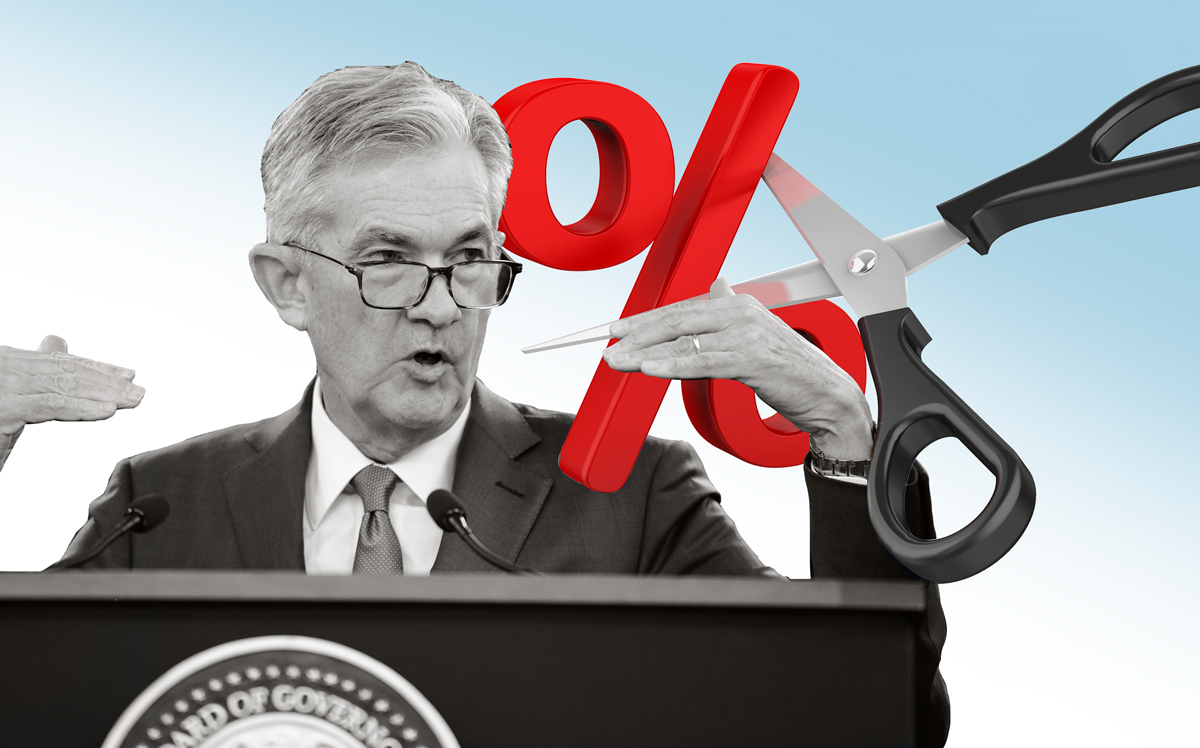Fed’s Rate Cut Sparks Divided Reactions, More Easing Expected
19.09.2024 12:30 1 min. read Kosta Gushterov
The Federal Reserve’s recent 50 basis point rate cut left experts divided.
Brad Bechtel of Jefferies pointed out that while the move was aimed at preventing a recession, the market’s reaction was underwhelming, likely because it had been partially expected.
During a press conference, Fed Chair Jerome Powell expressed satisfaction with the rate cuts, hinting he supported a more aggressive stance to gain wider approval within the Fed.
His decision was influenced by the Beige Book report, which painted a gloomy picture of the U.S. economy.
Bond market expert Jeffrey Gundlach cautioned against aggressive easing but noted another rate cut could come later in the year.
Meanwhile, Senator Elizabeth Warren criticized Powell for acting too late, arguing more cuts are needed to support consumers.
-
1
Economic Instability and Political Shift Fueling Bitcoin’s Rise – Galaxy Digital CEO
23.05.2025 12:00 2 min. read -
2
Trump Renews Attack on Fed Chair, Calls for Immediate Rate Cuts
18.05.2025 8:00 1 min. read -
3
Japan’s Inflation Hits 3.5% as Food Prices Soar and Tariff Risks Loom
23.05.2025 21:00 1 min. read -
4
US Dollar Dominance Under Threat Amid Yuan’s Global Ambitions
22.05.2025 14:00 2 min. read -
5
Wall Street Analyst Sees Bright Side of Ballooning U.S. Debt
30.05.2025 8:00 2 min. read
Tariffs Threaten to Stall U.S. Growth in 2025, Recovery Not Expected Until 2026
The U.S. economy may be closer to a downturn than many realize, according to Jay Bryson, chief economist at Wells Fargo.
Dollar Faces Deep Decline as Fed Cuts Pressure Currency, Warns Morgan Stanley
Morgan Stanley has issued a cautionary outlook on the U.S. dollar, predicting a major decline over the coming year as Federal Reserve rate cuts take hold.
Trillions in Debt Payments Could Break U.S. Economy, Ray Dalio Predicts
Legendary investor Ray Dalio has issued a stark warning about the trajectory of U.S. government finances, suggesting the country is drifting toward a series of severe economic shocks unless its debt spiral is urgently addressed.
Wall Street Veteran Warns Tariffs Could Disrupt AI-Driven Market Rally
Steve Eisman, the famed investor known for forecasting the 2008 housing collapse, is sounding the alarm—not on overvalued tech stocks or interest rates, but on the escalating risk of global trade disputes.
-
1
Economic Instability and Political Shift Fueling Bitcoin’s Rise – Galaxy Digital CEO
23.05.2025 12:00 2 min. read -
2
Trump Renews Attack on Fed Chair, Calls for Immediate Rate Cuts
18.05.2025 8:00 1 min. read -
3
Japan’s Inflation Hits 3.5% as Food Prices Soar and Tariff Risks Loom
23.05.2025 21:00 1 min. read -
4
US Dollar Dominance Under Threat Amid Yuan’s Global Ambitions
22.05.2025 14:00 2 min. read -
5
Wall Street Analyst Sees Bright Side of Ballooning U.S. Debt
30.05.2025 8:00 2 min. read


